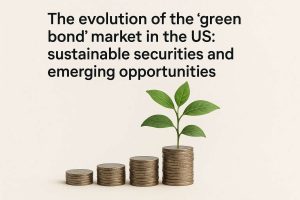Conscious consumption and sustainable finance are concepts that have gained significant traction in recent years and are particularly embraced by new generations. These young consumers, often referred to as Millennials and Generation Z, are reshaping industries and financial markets with their commitment to ethical and environmentally friendly practices.
Anúncios
As the world grapples with climate change and social inequality, these generations are ardent about making conscious choices in their consumption and financial habits. This blog post delves into how these progressive generations are redefining conscious consumption and sustainable finance, leveraging their purchasing power and investment choices to foster a more sustainable future.
The rise of ethical consumerism

Ethical consumerism is on the rise, driven primarily by Millennials and Generation Z. Unlike previous generations, these young consumers prioritize values over price, seeking products and services that align with their ethical and environmental beliefs.
One key factor influencing this shift is increased access to information. With the internet and social media, it’s become easier to research and verify the sustainability claims of brands. This has led to greater transparency and accountability, empowering consumers to avoid companies with unethical practices.
Moreover, these generations are not shy about using their voices to demand change. They actively participate in campaigns, petitions, and social media movements, advocating for more responsible production and consumption practices.
Impact on the market
The growing demand for ethical products has had a considerable impact on the market. Companies are now keenly aware that sustainability can no longer be relegated to corporate social responsibility reports but must be ingrained in their business models. Many brands have responded by transforming their supply chains and adopting greener practices, from using recycled materials to reducing carbon footprints.
This shift underscores a fundamental change: sustainability is now a competitive advantage rather than a niche concern. Retailers are increasingly stocking shelves with eco-friendly products, and new companies are emerging that exclusively offer sustainable goods. This market transformation is a testament to the power of conscientious consumers in shaping industry standards.
The role of technology
Technology plays a pivotal role in advancing ethical consumerism. Apps and platforms like Good On You and Buycott allow users to check the ethical credentials of brands and products instantly. Blockchain technology, known for its transparency, is being used to track the origins of goods, ensuring they are sourced responsibly.
This transparency extends to understanding the labor conditions and environmental impact associated with production. Additionally, online marketplaces focused on sustainable products are flourishing. Websites such as Etsy and ThredUp offer convenient platforms for purchasing second-hand or hand-made items, promoting a circular economy where reusing and recycling become the norm.
Pioneering sustainable finance
Just as ethical consumption is transforming markets, sustainable finance is reshaping the financial landscape. New generations are increasingly investing their money in ways that align with their values. Sustainable finance involves capital allocation to projects and companies that demonstrate a commitment to social and environmental responsibility.
This includes areas like renewable energy, green bonds, and social impact investments. Financial institutions are taking note, with many offering new products that cater to this growing demand for sustainable investments. These initiatives are helping to funnel capital into sectors that prioritize sustainability, further driving global progress in this crucial area.
Environmental, Social, and Governance (ESG) criteria
ESG criteria have become a standard for assessing the sustainability and ethical impact of an investment. New generations are using these criteria to guide their financial decisions, ensuring their money supports sustainable practices. By evaluating companies on their environmental stewardship, social responsibility, and corporate governance, investors can make informed choices that reflect their values.
This practice discourages investment in companies that fail to address climate change, labor rights, and corporate ethics. As a result, ESG investing has grown significantly, influencing corporate behavior and promoting higher standards of sustainability and accountability across industries.
Community investment and microfinance
Another trend shaping sustainable finance is community investment and microfinance. Young investors are increasingly directing funds to initiatives that uplift marginalized communities and foster economic inclusion. Microfinance institutions provide small loans to entrepreneurs in developing regions, helping them start or grow businesses.
This approach not only empowers individuals but also stimulates local economies and promotes self-sufficiency. Community investment funds are also gaining popularity, pooling resources to support local projects with high social and environmental impact. These funds democratize finance, allowing even those with modest means to contribute to significant positive change.


